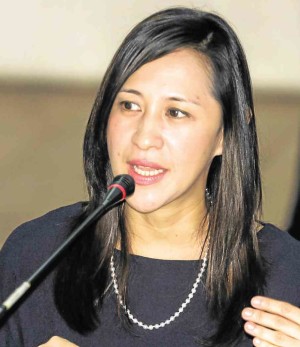Drug users in Quezon City who have surrendered under the Oplan Tokhang campaign and completed their rehabilitation may soon be employed in the Metro Rail Transit Line 7 (MRT-7) project, which is expected to take three years to finish.
In an interview, Vice Mayor Joy Belmonte spoke of an agreement between the city government and San Miguel Corp. (SMC), which is undertaking the 23-kilometer elevated railway project that will run between Quezon City and Bulacan province.
“Basically, it is already a done deal,” Belmonte told the Inquirer. “But as for the details, such as the number of surrenderers to be employed and the kind of work, we are still finalizing them.”
On Wednesday, Belmonte and Chief Supt. Guillermo Eleazar, director of the Quezon City Police District (QCPD), met with a “security consultant” of SMC to discuss the partnership.
She said a memorandum of agreement is currently in the works and set for signing tentatively next week.
In a media forum, Eleazar said the city government, particularly the city’s antidrug abuse advisory council, was working to provide livelihood projects for the Tokhang surrenderers looking for a fresh start.
He noted that Ramon Ang, SMC president, had already approved “in principle” the employment of rehabilitated drug users in the MRT-7 project.
“They can be qualified to work in utility or as flagmen,” he said. “They can even be hired as construction workers, depending on their skills.”
The MRT-7 project will consist of 14 stations, most of them located in Quezon City. It is expected to serve over 800,000 passengers daily.
On Feb. 11, the city government, in partnership with the QCPD, held an “orientation profiling” wherein the drug surrenderers were interviewed for their skills and qualifications.
Eleazar said around 300 surrenderers had so far been profiled and that the information gathered would be matched to available jobs and livelihood opportunities in the city.
According to the QCPD, it has recorded about 16,800 Tokhang surrenderers since July.
